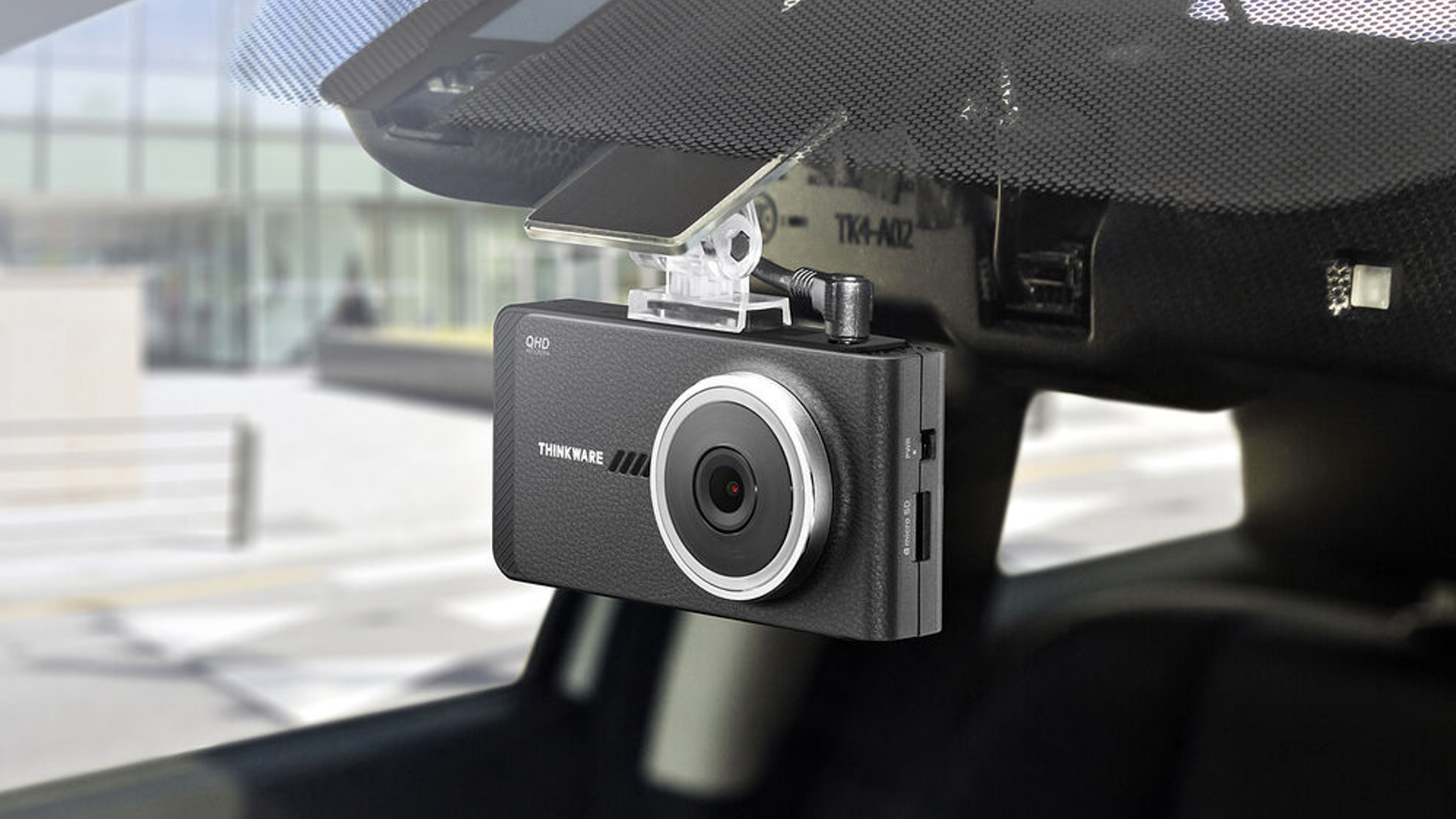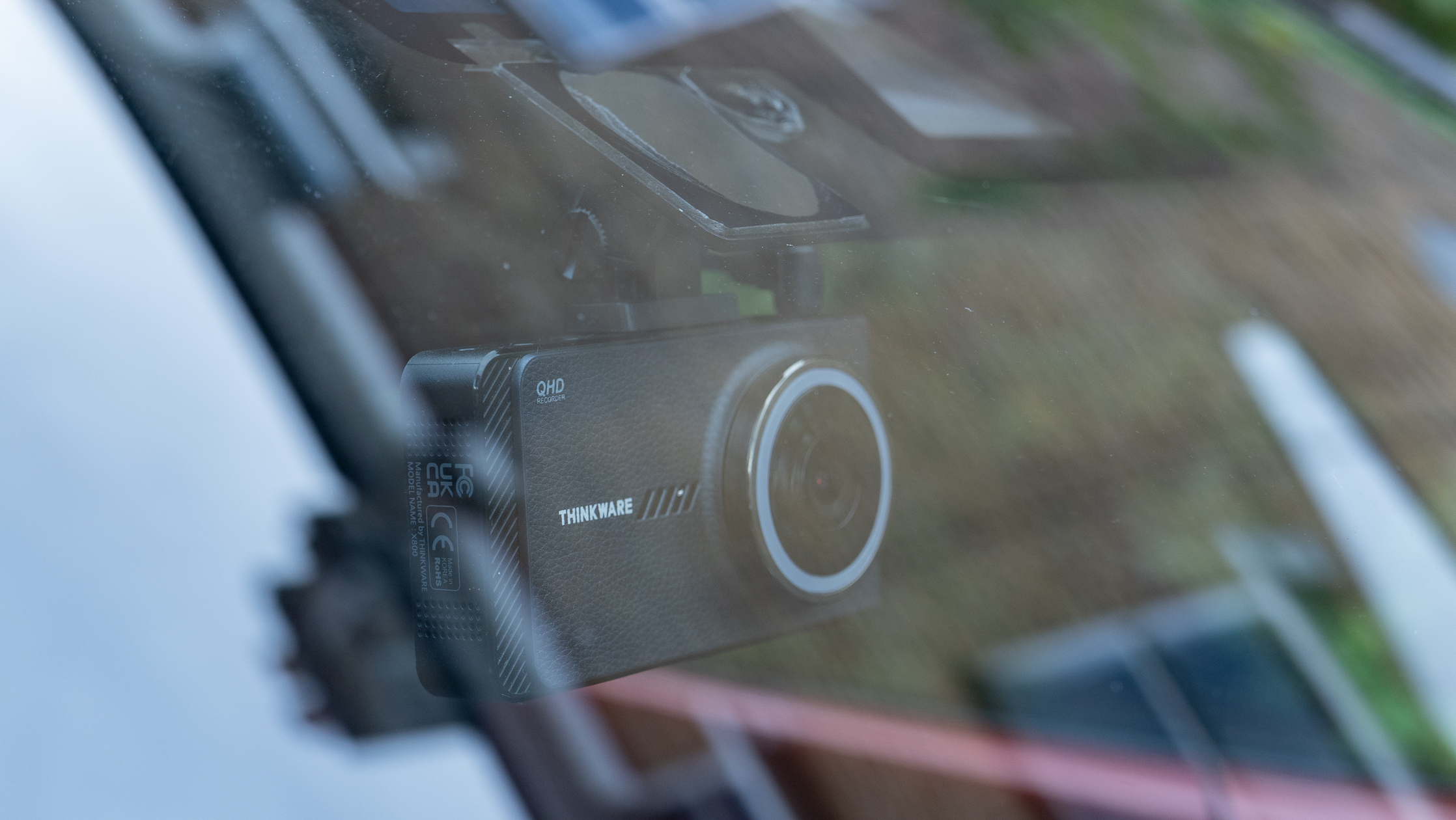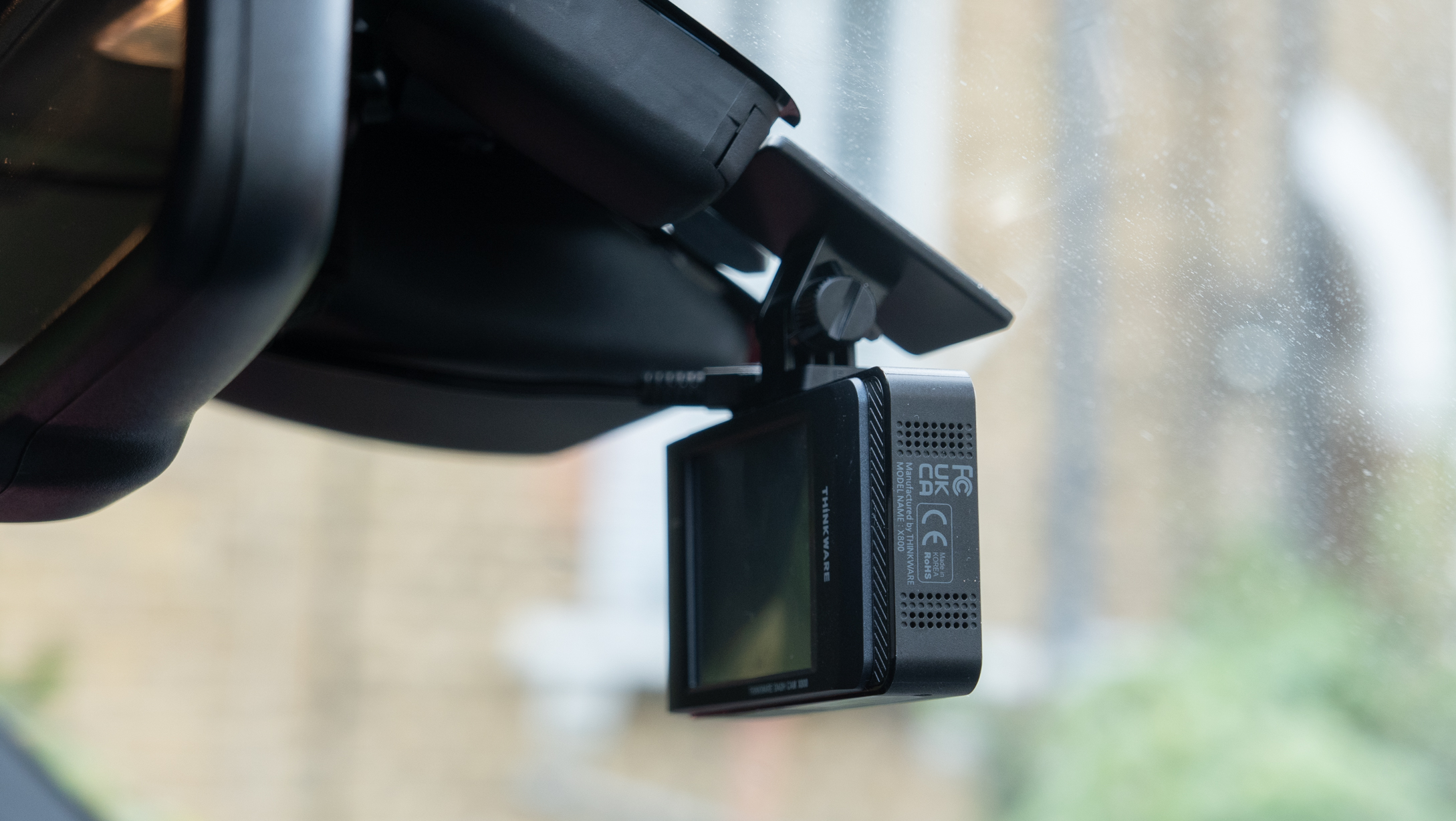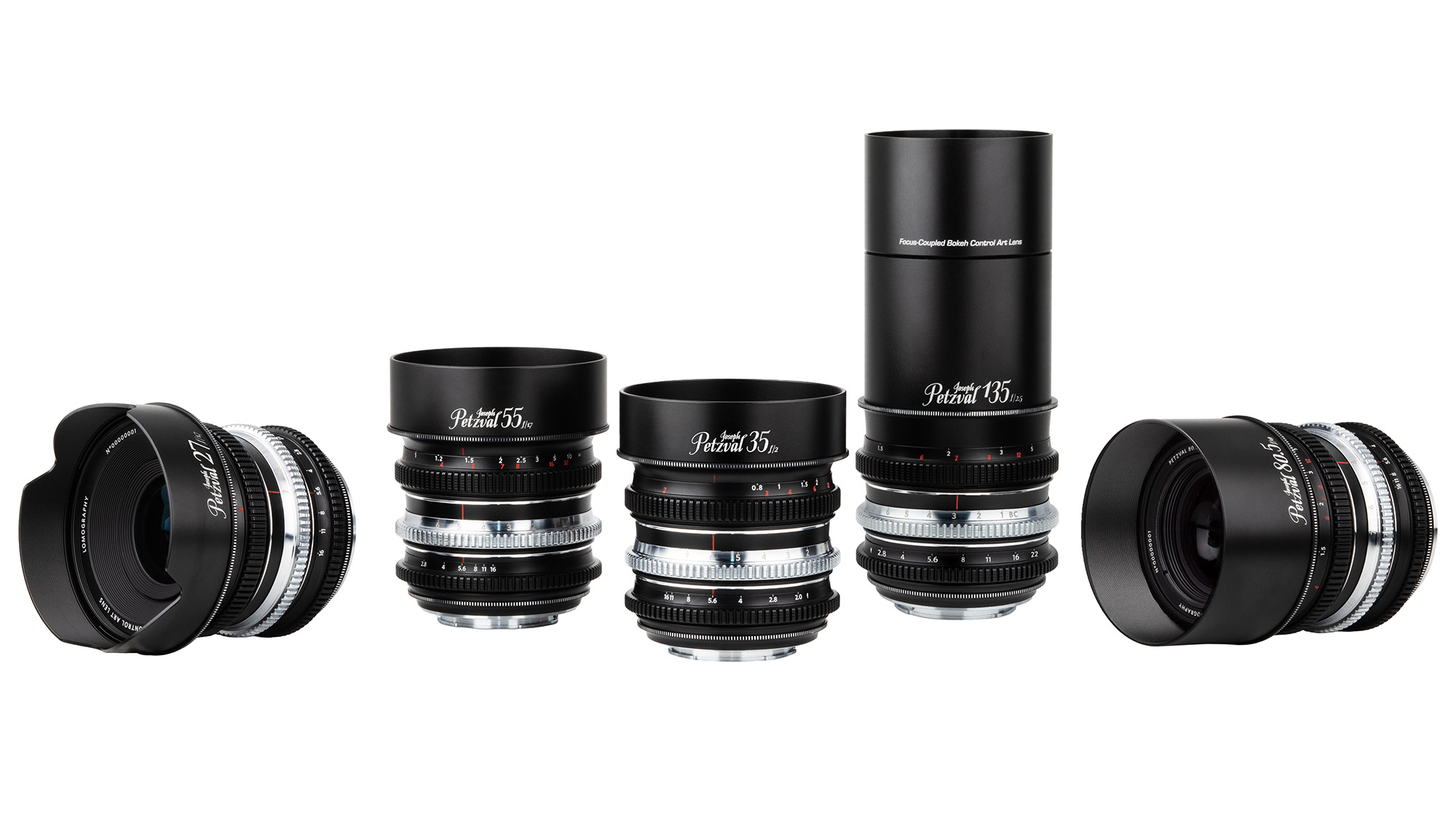Digital Camera World Verdict
The Thinkware X800 is a webcam that focuses on the basics. It does without speed warnings and driver assistance systems (which are available with the purchase of an optional GPS antenna), and instead sticks to producing good-quality video at 1440p resolution through a 150-degree lens. Its night vision is decent without being outstanding, the device is fairly compact, and setup is quick and simple thanks to the lack of Bluetooth and Wi-Fi. It feels slightly too expensive, at $200/£200, especially with stiff competition from Garmin.
Pros
- +
High resolution sensor
- +
Nice design
- +
Good night vision
Cons
- -
More expensive than the equivalent Garmin
- -
Lacks integrated GPS
- -
No Wi-Fi, Bluetooth or smartphone app (for those who want them)
Why you can trust Digital Camera World
The X800 is a mid-range, front-facing dash cam from Thinkware. It is an upgrade over the X700, owing to a higher resolution and improved night vision, but shares a very similar design.
Optional extras include a rear-facing camera, GPS antenna and hardwiring kit to enable a parking surveillance mode. We are reviewing the dash cam on its own and without these extras.
Thinkware X800 specifications
Resolution: 2K QHD (2560 x 1440)
HDR: No
Field of view: 150 degrees
Display: 2.7in LCD
Battery: No
The best camera deals, reviews, product advice, and unmissable photography news, direct to your inbox!
Voice control: No
Dimensions: 100 x 56 x 30mm
Weight: 110g
Key features


Among the X800’s key features is its Sony Starvis sensor, which promises improved low-light performance, and its ability to record video at 2K resolution. This is also written as 2560 x 1440, and means the video is of a higher pixel density than 1080p Full HD, which has a resolution of 1920 x 1080.
The large, 2.7-inch touchscreen LCD display is also a bonus for drivers who want it. Dash cams with displays can be distracting, but they also make for a convenient way to interact with the operating system, view recordings, adjust settings and check the view of the camera, all without using a smartphone app.
There’s also a parking mode, which requires the optional (but free) hard-wiring kit to give the camera a constant source of power when the car is switched off, and GPS is available via the purchase of an attachable antenna.
Build and handling
We’re quite fond of the way the X800 looks. Thinkware has clearly put some thought into the aesthetics, and while you may argue that how a dash cam looks is irrelevant, we think it’s a good indication that attention has been paid elsewhere too.
We particularly like the front panel, which is textured to look a bit like leather, and the overall look is one of a compact camera rather than a dash cam.
The X800 is fairly compact, at 100mm long, 55.5mm wide, and 30mm thick (including the large camera bump). It has a cleaner and more sophisticated design than some other dash cams, which tend to be overly bulky. The windscreen mount uses an adhesive pad that attaches to the top of the camera with a hinge that offers almost 180 degrees of adjustment, ensuring it’ll work with windscreens of any rake.
There’s a power switch and microSD card slot on one side – Thinkware includes a fairly small 32GB card in the box – and sockets for power, GPS, and optional rear-facing camera on the top.
Performance
Video produced by the X800 looks pretty good, especially in daylight hours where footage is sharp and key details like road signs, traffic lights and vehicle registration plates are clearly legible. Nighttime recordings aren’t quite as sharp, however.
Footage is plenty clear enough to see what’s going on, and to correctly place blame in the event of a collision. But registration plates are mostly washed out, potentially making it more difficult to identify the driver at fault.
This is a common issue with dash cams at night, and while the Sony Starvis sensor fitted here helps, it’s rare to see dash cam footage that keeps registration plates correctly exposed after sunset.
We really like how simple this dash cam is. It doesn’t have speed camera and lane departure warnings; instead it unobtrusively gets on with the job of being a dash cam. The touchscreen is nice and responsive, and switches off to avoid distraction while driving.
Verdict
The Thinkware X800 is great for drivers who simply want a good quality dash cam, and nothing more. We’re in this camp of motorists who want good-quality footage, but aren’t interested in speed camera warnings and driver assistance systems that, with the best will in the world, don’t perform as well as those already fitted to many modern cars.
Remove all that, and what you’re left with is a dash cam like the X800. It’s a good-looking and reasonably compact product that records sharp footage during the day and acceptable video at night. It is very easy to set up and doesn’t take up too much space, although the way it attaches to the adhesive windscreen mount is a bit clunky.
At $200/£200 the X800 is fairly expensive, considering its lack of GPS, wireless connectivity and voice control. Buyers keen for those features should look at the Garmin Dash Cam 67W instead.
Read more guides:
Best dash cams
Best front and rear dash cams
Best Uber dash cams
The best camera phones today
Best indoor security cameras
Best outdoor security cameras
The best action cameras
The best helmet cameras
Best backup camera
Alistair has been a journalist since 2011 and used to be Deputy Technology Editor at IBTimes in London. His specialist tech subjects include smart home gadgets, phones, wearables, tablets and dashcams. He is the host of The AutoChat Podcast.





